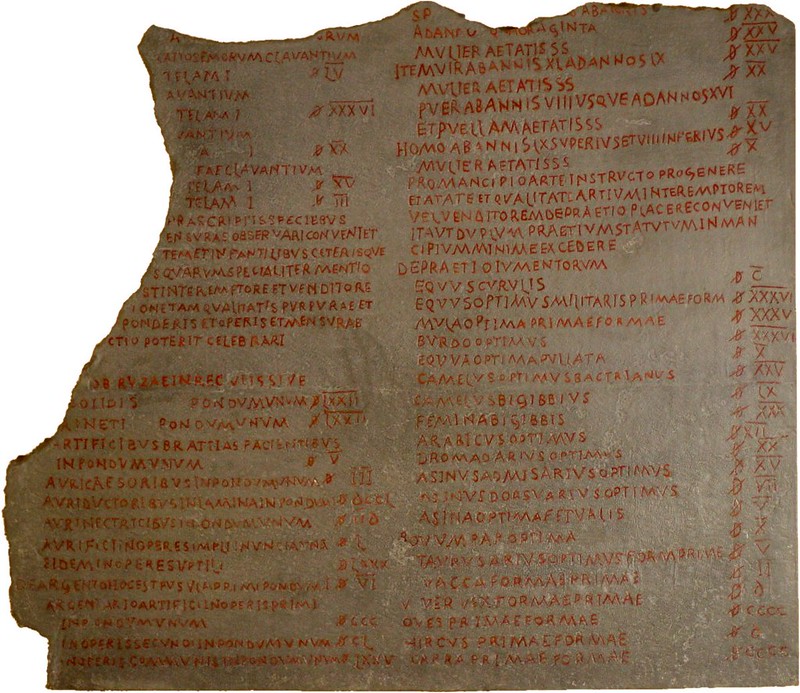
Today is the birthday of Diocletian, who was born in the year 244 C.E. He was a Roman Emperor, whose reign lasted from 284 to 305. During his time in charge and before, runaway inflation was a growing problem, which caused him to put a cap on prices in 301 C.E. Known as the “Ēdictum Dē Pretiīs Rērum Vēnālium” or Edict on Maximum Prices or occasionally the Edict of Diocletian, it set the maximum prices allowed on a variety of commodities, goods and services.
For example, a sextarius (roughly 500 ml, or about a pint) of Egyptian Beer had a maximum price of 2 Denarii. A Denarius was a common coin in Ancient Rome, beginning around 211 B.C. E. during the Second Punic War, becoming “the most common coin produced for circulation. The word denarius is derived from the Latin dēnī “containing ten”, as its value was 10 asses (later “retarrifed at sixteen asses”). It is the origin of several modern words such as the currency name dinar and the Italian common noun for money: denaro.”
Prsumably because it was better, the same amount of Gallic or Pannonian Beer had a maximum price set of 4 Denarii. Pannonia was a Roman province in the northern part of the empire, and was located in “present-day western Hungary, eastern Austria, northern Croatia, north-western Serbia, northern Slovenia, western Slovakia and northern Bosnia and Herzegovina.” Gaul was the area that is modern-day France.
Egyptian beer was sometimes translated as “Zythus” and at least another translation lists the Gallic or Pannonian Beer as “beer called Camus.” These other translations also list something called “Barley wine of Attica” with a hefty maximum price of 24 Denarii. Attica was the area around and including Athens in Greece. I have no idea if that was anything like our modern barley wine, and I can find no other mention of it in a quick search.
Another translation done in 1876 by an Edward Young, entitled “Labor in Europe and America: A Special Report on the Rates of Wages, the Cost of Subsistence and the Condition of the Working Classes” converted the Denarii prices to the then nearest American equivalent, which the author supposed was one-half cent to the Denarius. Using that scheme, the Egyptian beer would have been 7 cents, the Zythus, or Gallic or Pannonian Beer would have been 14 cents, and the barley wine of Attica 84 cents. Adjusting for inflation 138 years, in 2014 prices the maximum prices for a pint of our three beers would be $1.56, $3.11 and $18.67, which would be pretty expensive, even for 16 oz. of barley wine. But overall, those prices seem pretty decent. Salutaria!

A fragment of the Edict on Maximum Prices, on display in Berlin.

Diocletian — a man of the people! A great post, Jay, thanks.
All the best and Merry Christmas!